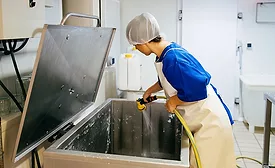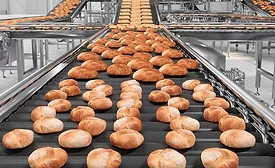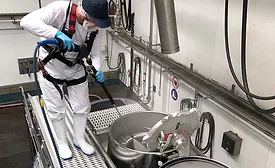Sanitation
Sponsored Content
Hygienic Electrical Solutions Assure Food Safety, Compliance, and Uptime
Expert insights on preventing contamination and equipment failures through purpose-built electrical systems designed for harsh food processing environments
August 6, 2025
Hygienic Design: How are Processors Coping With This Essential Element of Food Safety?—Part 2
Food processors elaborate on their sanitation program's fundamentals and challenges
June 19, 2025
Hygienic Design: How are Processors Coping With This Essential Element of Food Safety?
Hygienic design of both equipment and processing facilities is important for the consistent production of safe food
April 11, 2025
Dynamics of Water Quality for Food and Beverage Processing
Water interacts with various food components at a molecular level, which can alter the food composition and properties
April 8, 2025
Food on the Move: Managing Hygiene and Safety Risks in Transport
The transportation of bulk food within supply chains presents unique risks, particularly regarding the cleaning processes between loads in different countries and organizations
April 7, 2025
Never miss the latest news and trends driving the food safety industry
Newsletters | Website | eMagazine
JOIN TODAY!Copyright ©2026. All Rights Reserved BNP Media.
Design, CMS, Hosting & Web Development :: ePublishing












